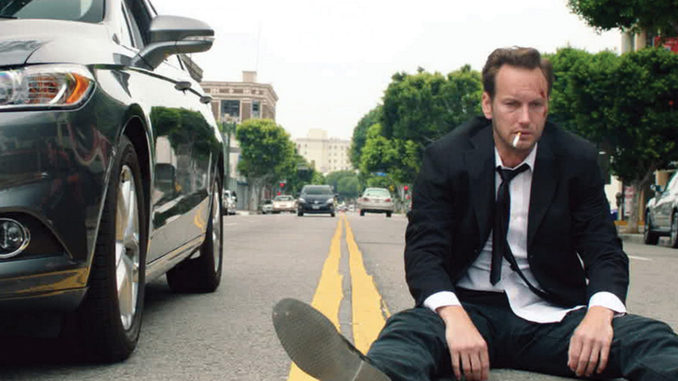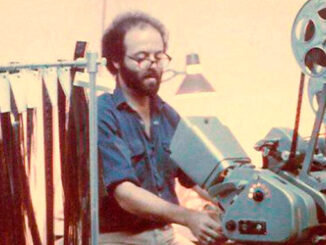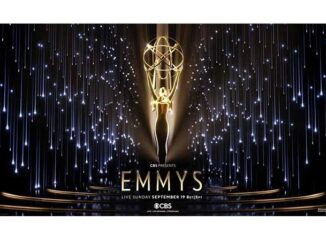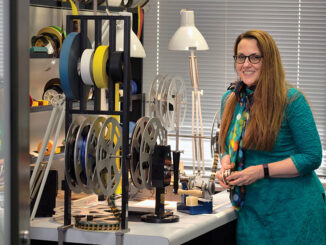
by Aric Lewis
I don’t remember exactly how I fell in love with storytelling. Perhaps it was because I was read to as a child — a lot. Editing is a different story. I first touched an Avid in 1999 as a summer intern in the creative services department at McDonald’s (yes, that one), and was hooked. I returned to Ball State University and would spend nights in the college editing bays, cutting anything I could, powered by Cherry Coke and Hostess frosted honey buns.
After graduating with a radio/TV/film production degree, I packed my car and moved for the first job in LA that called me to interview. It was a production assistant/runner opening with a post company specializing in advertising for home entertainment. I got the job. They said they liked “my drive.”
During the year-plus that I was a PA, some editors would let me practice cutting and offer feedback. The lesson was twofold: You learn by doing. And you get ahead by doing more. I was also learning about career options for editors — promo/trailer, film/television, union/non-union.
I realized I wasn’t going to be fulfilled by marketing. I wanted to be part of the team that crafts the stories, not the one that sells them, yet I had no idea how to enter the scripted world. I was told it wouldn’t be possible: “You don’t know the right people.”
I earned a promotion from PA to online editor, then left the company for a non-union reality show and a detour through culinary school. During nights I would assist, and my days were spent honing my knife work. Once I did a staging (essentially an unpaid internship) where a chef told me I would have to make a choice because it takes too much time to master either field. The lesson: Know what you want and work for it. When an opportunity arose to edit promos, I hung up my toque and never looked back.
Around 2007, at that same promo job, I was moonlighting on a film when the director I was working with said, “It takes years to make an overnight success.” (We were talking about ambition.) That always stuck with me. I loved editing promos but wanted to work on films and TV shows as my day job and not my side gig.
Based on my work experience, I was eligible to join the Editors Guild, and I did.
It would be years before I landed my first union job, but I was determined to make inroads so that when the opportunity finally came, I could take advantage of it. I started e-mailing editors I aspired to emulate, asking what skills they most sought. The response was that the job was more than technical abilities and hard work; temperament and having a genuine passion for that work was important.
Union work remained elusive, so I just kept at it. I made it a goal not to be outworked. I watched every workflow video available on the Guild’s website and mirrored those project set-ups on both my promo and side gigs. I went to mixers to meet other members and a networking seminar that gave me tools I still apply to this day. I went to ACE’s EditFest LA and found myself surrounded by people who were excited about editing as a craft. It was invigorating at a time when I was hearing “No” a lot.
In 2012, an editor-led non-union commercial house hired me to replace an assistant on a film. It was trial by fire. I’d studied/practiced as best I could, working indie projects, but I still didn’t know what I didn’t know. Finally, an editor at the commercial house, Paul Norling, took me with him to Blumhouse Productions for what became my first union movie, a horror film called The Veil (2016).
I shuffled through different Blumhouse projects and met writer/director Joe Carnahan and editor Jason Hellmann as an assistant on the crime comedy Stretch (2014). I followed them to NBC for my first scripted television show, State of Affairs (2014-2015). In Carnahan, I got to see a top-notch writer/director work, and in Hellmann, an incredibly inventive editor open to all the assistants. I can’t say enough about how fantastic it was to work with that crew.
It’s been said that work begets work. I can trace every job I’ve had since to the two-year period beginning in 2012. Even my current role as a visual effects editor on the Netflix series Raising Dion (2019) is a job I never could have done without the tutelage of Kevin Jolly, a fantastic effects editor I initially met during my Blumhouse stint.
I’m still learning this business and am fortunate to do something I love. I’m appreciative of the many mentors — both formal and informal — who fostered my growth and championed me thus far. My hope is that I’m able to be the same teacher, connector and source of guidance to others.





